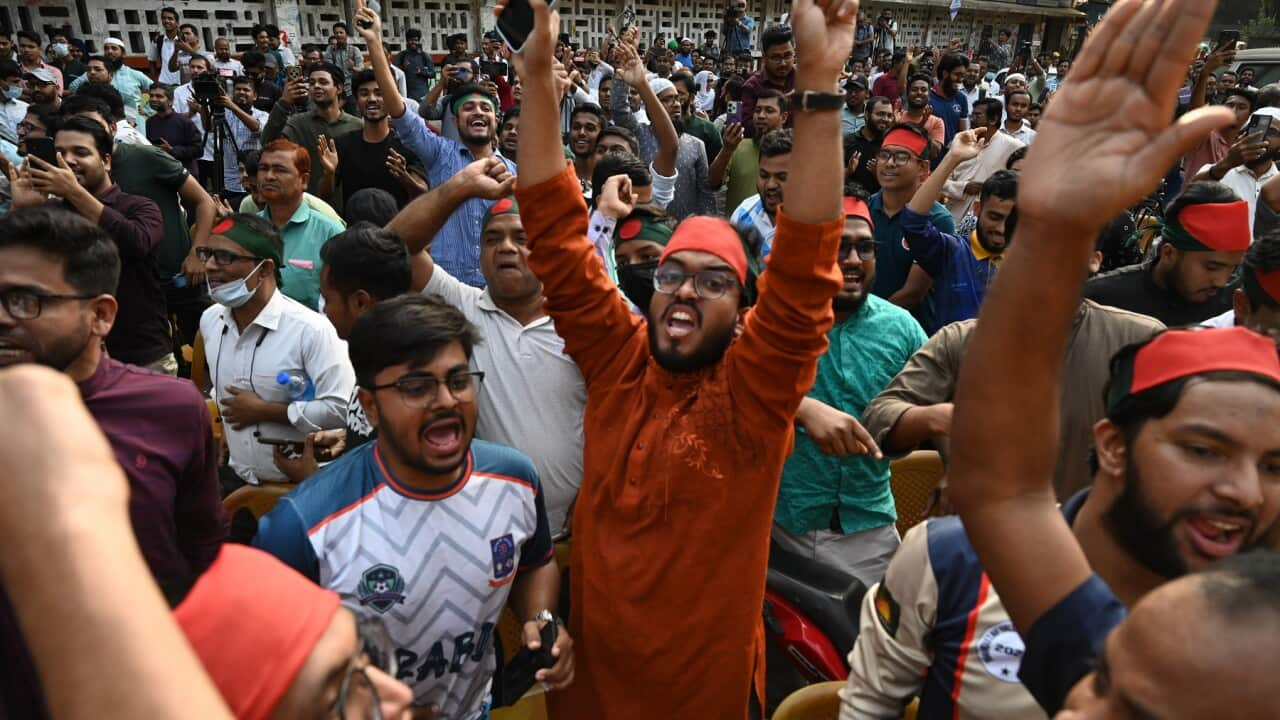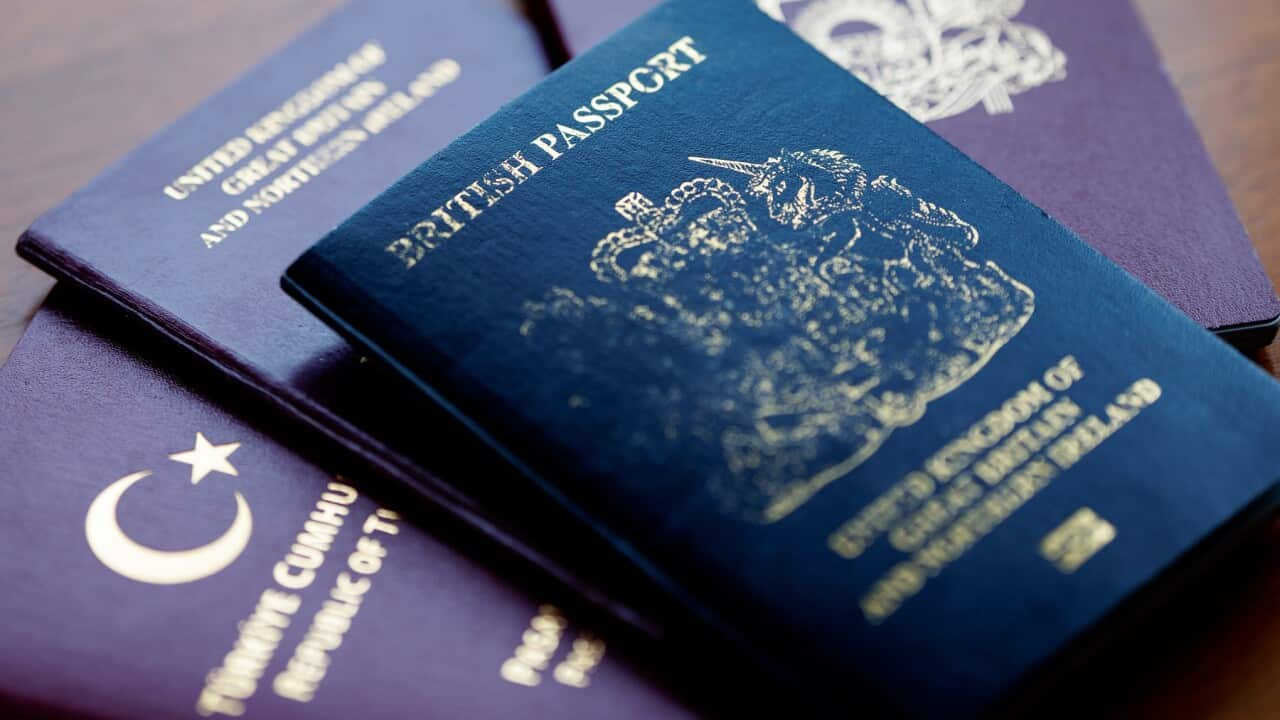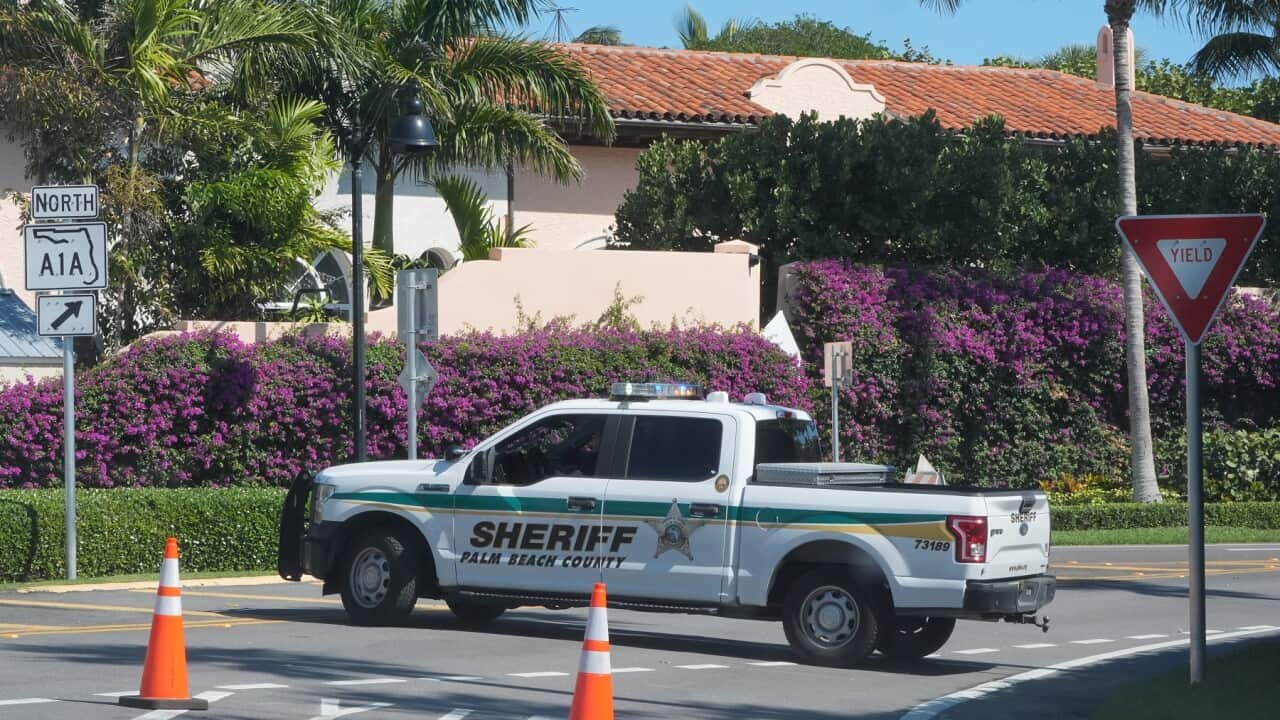Listen to Australian and world news and follow trending topics with SBS News Podcasts.
TRANSCRIPT:
Bangladesh has entered one of its most tense political periods in decades.
Ousted 78-year-old Prime Minister Sheikh Hasina has been sentenced to death by a special tribunal in Dhaka, found guilty of crimes against humanity during last year’s August student-led uprising.
The presiding judge, Justice Golam Mortuza Mozumder, read the verdict live to a packed courtroom.
“For all these three counts, we have decided to inflict her with only one sentence, that is, sentence of death."
Chief prosecutor Tajul Islam describes the verdict as the end of political protection of state power.
“The accused Sheikh Hasina has been found guilty of crimes against humanity for killing around 1,400 students and civilians and injuring about 25,000 during the July 2024 uprising in Bangladesh through the use of lethal weapons, helicopters, and drones. ... For these crimes, she has been sentenced to death..... If the families of the martyrs feel even a small degree of relief today, that becomes the only victory we seek. We believe this verdict frees the nation from a long-standing culture of impunity.”
Sheikh Hasina is currently in India.
In a statement released online, she denies every accusation and calls the tribunal illegitimate, politically driven and says she was denied a fair defence.
“The verdicts announced against me have been made by a rigged tribunal established and presided over by an unelected government with no democratic mandate. They are biased and politically motivated, designed to remove Bangladesh’s last elected prime minister and destroy the Awami League as a political force. I wholly deny the accusations made against me. I mourn all of the deaths, but neither I nor other political leaders ordered the killing of protestors. I was given no fair chance to defend myself, nor to be represented by lawyers of my own choice.”
She insists that security forces acted independently under established protocols, and claims transcripts and audio evidence were taken out of context.
Outside court, relatives and survivors gathered with banners and flowers.
Among them was Abdur Rab, whose son Miraj was killed while photographing the clashes.
“My son went out on August 5, 2024, to take photographs of the conflict. He was wearing a national flag, proud of his country. When he was under a flyover, police fired from inside the local station and he was hit with several bullets in the chest. He died on the spot. The verdict pacifies us a little, but justice will only be complete when the sentence is carried out, so the stain on our history is removed forever.”
Outside Hasina's former home in the capital, Dhaka, protesters clashed with riot police, as they called for justice to be served.
Among them, student Nowshin Nowar.
“By any means we will bulldoze Hasina’s house, and then, and only then, we will leave.”
Meanwhile, supporters of the Awami League are calling for resistance rather than acceptance.
Senior Awami League member Jahangir Kabir Nanak says the court's verdict is illegitimate.
"The verdict announced by the court today has been rejected by the people of Bengal. The people of Bengal do not accept this verdict and will not accept it. In protest of this verdict, a nationwide shutdown will be observed tomorrow from morning to evening."
He's vowed to increase pressure on the current government.
"We want to state clearly that our movement will continue and become even more intense until the Yunus government steps down."
At the United Nations in Geneva, spokeswoman Ravina Shamdasani says accountability must not come at the expense of fair trial standards.
"This is an important moment for the victims of grave human rights violations committed during the suppression of protests last year. While we were not privy to the conduct of this trial, we have consistently advocated for all accountability proceedings, especially on charges of international crimes, to unquestionably meet international standards of due process and fair trial. This is particularly vital when, as was the case here, the trials have been conducted in absentia and led to a capital punishment sentence. We also regret the imposition of the death penalty, which we oppose in all circumstances."
Analysts say Hasina cannot return to frontline politics while in India.
Political analyst Jyoti Rahman says the Awami League will likely need new leadership.
“It is impossible at this moment for Hasina to come back and lead the Awami League into any election. That's one direct political implication. The party will need to identify a different leader, whether nominated by Hasina or whether the party says we have to move beyond Hasina - that remains to be seen.”
With a death sentence, a rejected tribunal, loyalists vowing escalation, and elections looming, Bangladesh now waits to see whether the next chapter unfolds in diplomacy or further violence.













